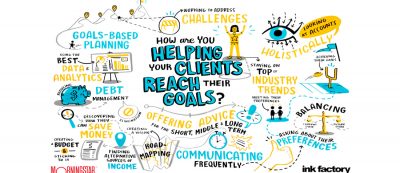In Practice
Three reasons to adopt a client portal in 2023 [VIDEO]
Client portals are a huge opportunity for advisers to engage clients and better protect their security. In less than three minutes, find out how client portals can help advisers from Morningstar Australia's Head of Business Development and Strategy, Peter Bryant.In Practice
User Guide: Model Portfolio downloads from Morningstar Direct into Morningstar Portfolio X-ray tool.
The following user guide is for Morningstar Direct users to be able to download their model portfolios that can be easily imported into Morningstar’s Portfolio X-ray tool on Adviser Research Centre and AdviserLogic.In Practice
Top 10 most popular Investments in 2020
We’re looking at the most frequently viewed securities – equities, funds, and ETFs – on Adviser Research Centre over 2020. Based on previous years there were no real surprises, the pandemic didn’t alter the way Advisers thought about Investments, continually looking at quality and value for their clients.In Practice
This is your brain on uncertainty
It’s been a long slog to get this far in 2020 and unncertainty is stressful. In fact, humans have been shown to prefer even physical pain to the stress of uncertainty, but we have to be careful right now to avoid making rash investment decisions that we might soon regret. In this article, Sarah Newcomb provides some healthy food for thought to help you keep your head while others are losing theirs.In Practice
Sustainable Investing Landscape for Australian Fund Investors
The coronavirus has dominated both news headlines and investors’ minds in 2020. But hidden amidst the news headlines is that investment options and assets in sustainable funds in the Australian retail marketplace continue to grow, with promising signs of performance during the volatility caused by the pandemic. We explore the recent trends within sustainable retail investments in Australia, as well as Morningstar’s updated framework for identifying sustainable funds.In Practice
Who's next? Discounts on LICs force managers to pivot
History will record that the few years until 2019 were halcyon days for Listed Investment Companies (LICs) and Listed Investment Trusts (LITs). The main listed competitor for the LIC/LIT structure is Exchange Traded Funds (ETFs). While LICs/LITs have failed to launch any primary transactions in 2020, ETFs have gone from strength to strength, reaching a record $70 billion in August, a lead of $25 billion over their rivals.In Practice
Principles of Investing
Investors in shares must expect market shocks as part of the long-term benefits of owning part of a company, and on average over time, stock markets fall one year in every five. We have put together some graphs which show some fundamental principles of investing, and how markets have recovered from previous shocks, with supporting commentary.In Practice
7 Items Your Estate Plan May Have Left Out
If your goal is to look out for your loved ones, you should consider tackling these estate-planning additional jobs. Estate planning is the easiest financial planning to-do to put off. It’s certainly not fun to ponder your own mortality, and yet that’s the very nature of estate planning. In this article, Christine Benz explores seven aspects overlooked by many.In Practice
60/40? Do you have the right mix of shares versus bonds?
Bonds have been a beautiful thing over the past couple of decades, compounding returns at a decent clip while faithfully filling their traditional role as buffers in down markets. But now that interest rates are close to all-time lows, their future return prospects are much lower. In this article, we explain why investors saving for retirement should consider shifting their asset allocations to lean more heavily on stocks.In Practice
Evaluating Carbon Risk in Managed Funds
The impacts of the coronavirus pandemic have reverberated aggressively across the globe. Immediate term societal priorities are on protecting public health and stabilising financial and employment markets. This period also serves as a reminder of global interconnectedness, systemic risk, and the vulnerabilities and tensions between economic, social, environmental, and governance considerations.In Practice
What Prior Market Crashes Can Teach Us About Navigating the Current One
The circumstances of the current market crash might be unique to the coronavirus pandemic, but they lead investors to wonder: Are such drops normal for equity markets, or is this different? The regularity of market crashes is a reminder that patience is key to investing in equity markets.In Practice
How to Manage Client Conversations During Turbulent Markets
As the market pendulum continues to swing back and forth, many investors may be struggling to rein in their emotions. During these troubling times, financial advisers can use behavioral coaching tactics to help their clients manage their emotions and avoid making rash decisions.In Practice
The virus will run its course, but the pain of record debt will become more acute
Coronavirus is affecting the global economy to a greater degree than any previous event. Global supply chains are so interwoven that the initial disruption in the world’s largest manufacturing centre triggered a meaningful slowdown in world trade and economic activity.In Practice
Coronavirus: An Investment Perspective
Public health outbreaks can quickly scare investors and, eventually, affect economies and businesses. The recent coronavirus outbreak has shut down airports, halted trade, and led to the rapid construction of new hospitals in China. The effects of the outbreak may push China's economy into a period of slower growth, with stocks trading lower as investors seek protection.In Practice
Why Financial Advisers Should Operate as Financial Coaches — And How to Do It
Between social media, financial news outlets, stock apps, and word of mouth, today’s investors have no lack of information. In this environment, financial advisers can no longer view access to data or investment options as the biggest service they provide, as investors are now craving holistic advice that will effectively help them achieve their personal goals. To meet this demand, financial advisers need to increasingly think of themselves not only as investment advisers, but also as financial coaches.In Practice
How to Help Clients Choose Between Funding Retirement and a Child’s College Education
When it comes to tuition costs, many advisers see their clients face a common problem. They want to pay for their children's tuition even if it means putting their own future financial security in jeopardy. Doing otherwise may make clients feel like a bad parent or provider.In Practice
How to Understand What Investors Value in a Financial Adviser
Since meeting investors’ needs is essential to attracting and retaining clients, this level of discordance between the expectations of advisors and their clients can drastically impact the success of an advisor’s practice.
Here, we discuss what advisors can do to help bridge the gap.























